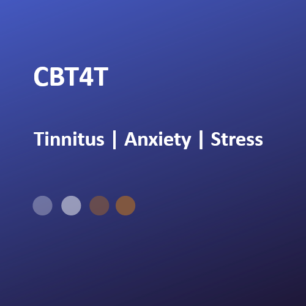THIS PROJECT IS COMPLETED - Thank you to all participants
Anxiety: Why is it that so many of us wait until symptoms are so bad before we DO something about it?
Anxiety really has become “a silent epidemic”. Up to a third of the population live with anxiety, 40% of the population with anxiety or depression (Anxiety UK)
Would it not make sense to DO something BEFORE the symptoms are so severe, you have to visit the GP and their prescription pad?
Much of my clinic time is spent helping people reduce anxiety from severe to “normal” levels of anxiety. And yes! There are “normal levels of anxiety”! It’s perfectly normal to feel a rush of inner sensations when something unexpected happens, for example. But those feelings dissipate quickly. It’s mainly adrenaline (quick release and short lasting) that floods the body causing the sensations. But within minutes, the body is back in equilibrium and we go about our daily business.
Mild, moderate and severe anxiety (beyond “normal anxiety”) is when we barely notice an adrenaline rush, because there is constant disequilibrium in the body, mainly caused by high levels of cortisol (a steroid hormone). Too much cortisol is toxic to the body, and because there are cortisol receptors throughout the body, it affects pretty much everything we do and how we feel (our mood). Cortisol is long lasting, and ends up being produced constantly by the adrenal glands situated near the kidneys. It’s often why, when we’re stressed and anxious all the time, we experience a dull ache in the back - but headaches and muscle aches are also symptoms experienced because of the far reaching effects of cortisol.
If you are noticing a constant tension in your body, butterfly sensations in the abdomen, some difficulty focusing or concentrating, the likelihood is your anxiety levels are higher than they could be.
SELF-DIRECTED DE-PROGRAM ANXIETY PROJECT
I am looking for people with mild-moderate anxiety levels to test my DeProgram Anxiety programme as a Self-Directed intervention. So far, 95% of those offering to participate have anxiety too severe to be expected to cope without additional Therapist Support.
At some point though, all those people started with mild symptoms. This is a great opportunity to “nip anxiety in the bud” by catching it early and PREVENT anxiety from becoming worse and adding to the epidemic!
THREE Steps to Apply: IMPORTANT! Please check your Spam and Junk email boxes if you do not receive an acknowledging email after you send in each of your measures and application. You can contact me direct using the Message Service in my Facebook Page www.facebook.com/debbiefeatherstoneuk
STEP 1. Check out your anxiety level: Anxiety measure To participate in this project, your score needs to be 24 or less. Click SEND at the end of your completed anxiety measure and go to Step 2
- Where your score is 25+, you would benefit from support through the intervention (email support with Opt-In 1-1 online meeting) Go To Course
- Where your score is 25+, and you would still like to participate in a project for the Self-Directed intervention, you can still apply to be considered for a separate project. Continue to complete your Mood Indicator
STEP 2. Check out your Mood Indicator: Mood Indicator To participate in this project, your score needs to be 7 or less. Click SEND at the end of the questionnaire and go to Step 3
- Where your score is 10+, you would benefit from support through the intervention (email support with Opt-In 1-1 online meeting) Go To Course
- Where your score is 10+, and you would still like to participate in a project for the Self-Directed intervention, you can still apply to be considered for a separate project. Continue to complete your application to participate in the Self-Directed Project
STEP 3. Apply to participate in the Self-Directed De-Program Anxiety Project
